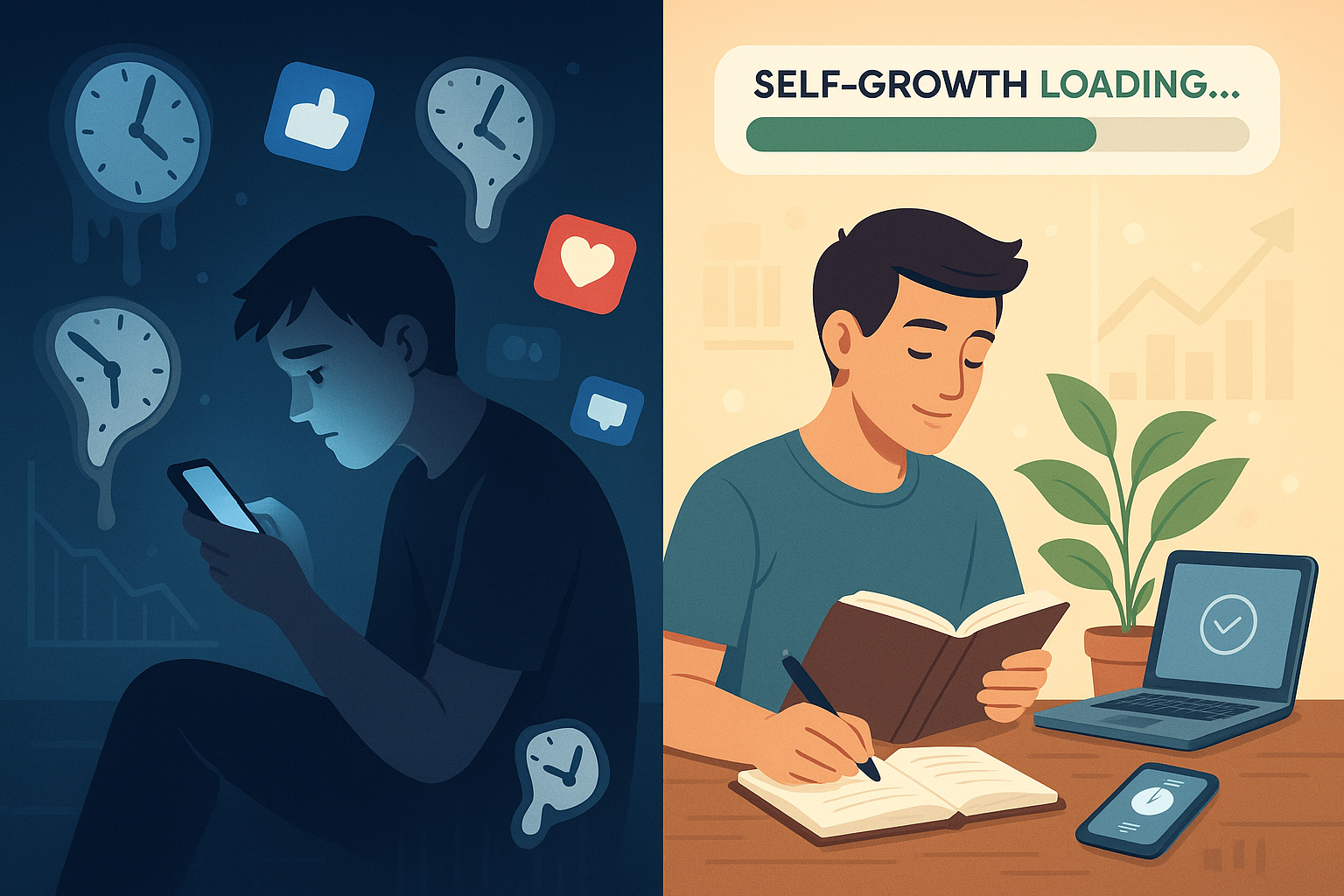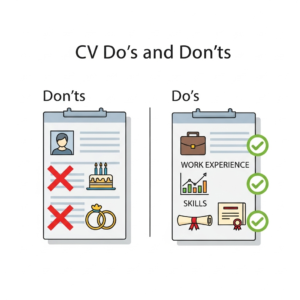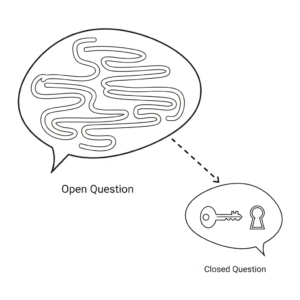In today’s always-connected world, our smartphones act as lifelines—offering entertainment, information, and social connection with a single swipe. But here’s the uncomfortable truth: while we scroll endlessly, we’re often letting precious hours slip through our fingers without anything to show for it.
According to DataReportal’s 2023 Global Digital Report, the average person spends 6 hours and 37 minutes online per day, including over 2.5 hours on social media alone. That’s nearly 1,000 hours a year—the equivalent of more than 41 full days. Now imagine if you used even half of that time to grow professionally or personally.
The Psychology Behind the Scroll
We scroll for a reason. According to research from the University of Chicago (Wilcox & Stephen, 2012), social media gives us quick hits of dopamine, satisfying our need for instant gratification. But this gratification comes at a cost: attention fatigue, reduced productivity, and passive consumption.
As digital wellness advocate Cal Newport explains in Digital Minimalism, “Clutter is costly, and the most dangerous kind is the clutter that quietly piles up in the background while we’re not paying attention.”
So the real question is no longer, “How much time are you spending online?” but rather: “What are you gaining from that time?”
The Real Cost of Passive Screen Time
Let’s break it down:
- 30 minutes/day of mindless scrolling = 182 hours/year
- 2 hours/day = 730 hours/year
- That’s over 30 full days annually spent without growth or direction
Compare that to what we know about skill development. A LinkedIn Learning Report (2018) revealed that 94% of employees would stay longer at a company that invests in their development. And yet, so many of us hesitate to invest even 30 minutes a day in our own growth.
The takeaway? You don’t need massive life changes. You need consistent, intentional time—just 20–30 minutes per day—to start making real progress.
Step 1: Stay Focused, Not Distracted
It’s not about quitting your phone—it’s about using it purposefully.
Use these tools to minimise distraction and reclaim focus:
- Focus To-Do – Combines Pomodoro technique with task management
- Forest – Gamifies your focus by growing trees as you stay offline
- Freedom / Opal / StayFree – Temporarily block distracting apps or sites
- RescueTime – Tracks your habits and visualises where your time goes
🔁 Try This: Use the Pomodoro Technique – 25 minutes of focused work followed by a 5-minute break. After 4 sessions, take a longer break. This method improves focus and reduces burnout.
Step 2: Turn Your Phone into a Learning Tool
Instead of opening TikTok or Instagram, explore tools that fuel your brain:
- Duolingo / Babbel – Learn a new language in bite-sized lessons
- Elevate / Peak / Brilliant – Boost your cognitive abilities and logic
- Blinkist / Headway – Access key insights from top nonfiction books in 15 minutes
- LinkedIn Learning / Coursera / FutureLearn – Upskill with certifications and expert-led classes
📚 According to MIT, microlearning improves long-term memory retention by over 20% and increases learner engagement, making it more effective and sustainable than traditional long-form education.
Step 3: Reflect, Plan & Recharge Intentionally
Growth isn’t only about action—it’s also about intentional pause and alignment.
Use these apps to support your mental health and strategic planning:
- Notion / Day One / Evernote – For journaling, career tracking, and goal setting
- Headspace / Insight Timer / Balance – For guided mindfulness and mental reset
- Todoist / Google Calendar – For organising your day around your real priorities
🧠 The University of Rochester found that individuals who engage in regular self-reflection report higher productivity, stronger decision-making, and better emotional resilience.
The Power of Small Shifts
Reclaim just 30 minutes a day, and here’s what you gain:
- 15 hours/month = start a side hustle or take a short course
- 180 hours/year = earn a certification, complete an online degree module, or significantly improve a language skill
You don’t need a life overhaul—just small daily choices that compound over time.
Final Thought: Are You Growing?
Let’s be clear: scrolling isn’t evil. Sometimes we need to switch off. But the difference between growth and stagnation lies in the intentional use of our time.
Next time you reach for your phone, ask yourself:
- Am I scrolling to avoid something, or build something?
- Could I use this moment to fuel my career, clarity, or creativity?
At GetHired.ie, we help professionals — especially foreign nationals and those navigating redundancy—turn their career downtime into opportunity. From CV support to mock interviews, public sector applications, and coaching, we help you make every minute count.
Your Challenge This Week:
Replace 30 minutes of scrolling with:
- A course module
- A journal entry
- A new skill practice
- A language lesson
📌 Then do it again tomorrow. Your future self will thank you.










